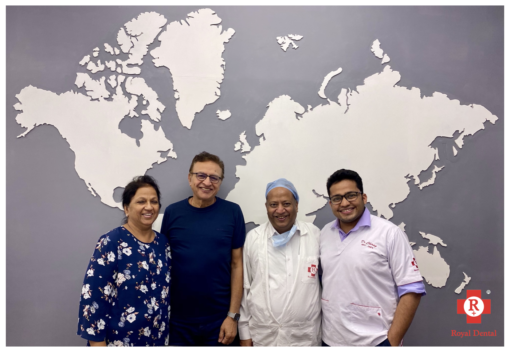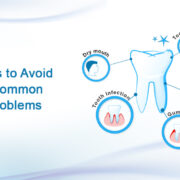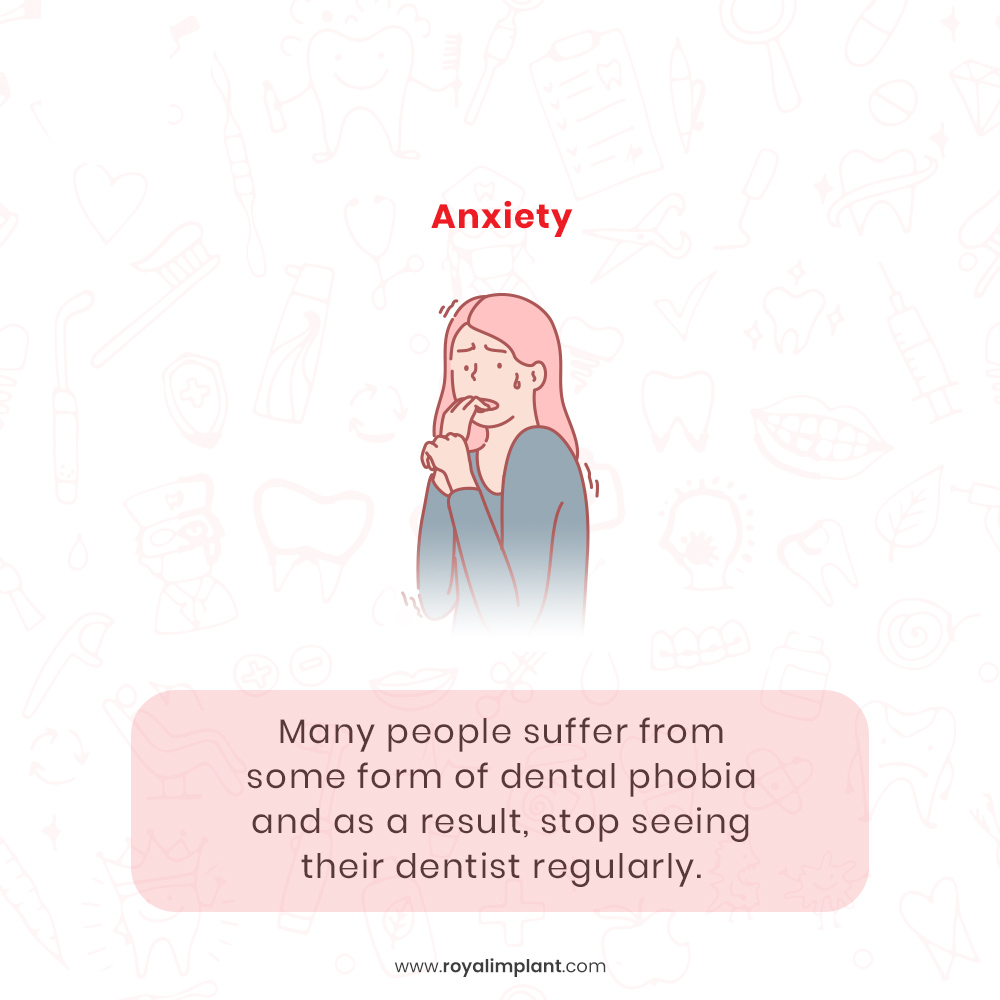In today’s competitive dental industry, it takes more than just expertise to stand out from the crowd. Patients want an exceptional experience, and dentists who can provide that will be the ones who succeed. In this article, we will explore five ways that dentists can differentiate themselves in a competitive market by creating unique and memorable dental experiences for patients.
Shift from Expertise to Experience in Dental industry
In the past, dentists could rely solely on their expertise to attract and retain clients. However, with the rise of patient demand for exceptional experiences, the shift from expertise to experience has become increasingly important. Patients want to feel valued and cared for, and they are more likely to stay loyal to a dentist who provides that experience. As a result, dentists must understand the importance of patient experience and how it can impact their practice. This means focusing on not only providing high-quality dental care but also creating a comfortable and welcoming environment for patients.
Importance of Dentist building relation with patient
Trust: Patients are more likely to trust dental providers who they have a good relationship with. Building trust is important because it can lead to better patient outcomes, as patients are more likely to follow through with treatment recommendations and take an active role in their oral health.
Communication: Strong relationships also improve communication between dental providers and patients. Patients who feel comfortable with their dental providers are more likely to ask questions, provide feedback, and share concerns. Effective communication is important for ensuring that patients understand their treatment options and feel involved in the decision-making process.

Loyalty: Patients who have positive experiences with their dental providers are more likely to return for future appointments and recommend the provider to others. Building strong relationships can lead to increased patient loyalty, which can help dental practices grow and thrive.
Patient satisfaction: Ultimately, building strong relationships with patients can improve overall patient satisfaction. Patients who feel valued and respected by their dental providers are more likely to report high levels of satisfaction with their care.
In order to build strong relationships with patients, dental providers should focus on listening to patients, being responsive to their needs, and providing compassionate care. By prioritizing the patient experience and building strong relationships, dental providers can improve patient outcomes and build a successful practice.
Leverage technology in enhancing Dentist patient
Technology has played an increasingly important role in the dental industry, and it can be leveraged to streamline processes and enhance the patient experience. Here are some examples of how technology can be used to improve dental practices:
Electronic health records (EHRs): EHRs can help dental practices manage patient data more efficiently. By storing patient information electronically, dental providers can easily access and update patient records, reducing the need for paper-based record-keeping. EHRs can also be used to send reminders to patients about appointments and follow-up care.
Online appointment scheduling: Many dental practices now offer online appointment scheduling, which can improve the patient experience by making it easier for patients to book appointments at their convenience. Online scheduling can also reduce administrative work for dental staff by automating appointment confirmation and reminders.
Dental technology in uplifting Dentist patient relation
Telehealth: Telehealth technology can be used to connect dental providers with patients remotely, which can be especially useful for patients who live in remote areas or have mobility issues. Telehealth can also be used to provide follow-up care and consultations for patients who cannot make it into the office.
Intraoral scanners: Intraoral scanners can be used to create digital impressions of patients’ teeth, which can be more accurate than traditional physical impressions. This technology can improve the patient experience by reducing discomfort during the impression process and providing faster turnaround times for restorations.
Patient education tools: Technology can also be used to provide patients with educational resources about oral health and treatment options. Dental practices can use online resources, such as videos and interactive tools, to educate patients about their oral health and help them make informed decisions about their care.
By leveraging technology to streamline processes and enhance the patient experience, dental practices can improve patient outcomes, reduce administrative work, and build a loyal patient base.
Marketing strategies that highlight the patient experience
Marketing strategies that highlight the patient experience can be a powerful tool for dental practices looking to differentiate themselves from competitors and attract new patients. Here are some effective strategies for marketing the patient experience:
Patient testimonials: Sharing patient testimonials on your website or social media channels can be a powerful way to demonstrate the positive experiences patients have had with your practice. Encourage satisfied patients to share their experiences and feedback and showcase them on your website and social media pages.
Patient-centered content: Creating content that focuses on the patient experience, such as blog posts or videos that explain the process of a dental appointment or highlight the benefits of a specific procedure, can help potential patients understand what they can expect when they visit your practice.

Emphasize technology and convenience: Highlighting the technology and convenience features of your practice, such as online appointment scheduling or telehealth services, can demonstrate your commitment to providing a seamless and convenient patient experience.
Staff training and development: Investing in staff training and development can help ensure that every patient interaction is a positive one. Promote the skills and expertise of your staff, and highlight their focus on providing personalized and compassionate care.
Social media engagement: Actively engaging with patients and potential patients on social media can help foster a sense of community and demonstrate your practice’s commitment to building relationships with patients.
Ultimately, marketing strategies that highlight the patient experience can help dental practices attract new patients and build a loyal patient base. By focusing on the patient experience, dental practices can set themselves apart from competitors and position themselves as leaders in patient-centered care.
Creating memorable experience for Dentist and patient
Personalisation: Personalizing the patient experience can help make patients feel valued and important. This could include greeting patients by name, remembering details about their personal lives or interests, or sending personalized messages or gifts on special occasions.
Comfort and relaxation: Many patients experience anxiety or discomfort during dental procedures, so creating a calming and relaxing environment can help put them at ease. Consider offering amenities such as comfortable seating, noise-cancelling headphones, or aromatherapy to help patients relax.

Entertainment: Providing entertainment options such as TVs or tablets can help distract patients and make the appointment more enjoyable. Some practices even offer virtual reality experiences to help patients relax during procedures.
Education: Providing educational resources to patients can help them feel empowered and informed about their oral health. Consider offering informative videos, brochures, or one-on-one consultations with dental professionals.
Follow-up care: Following up with patients after their appointments can help demonstrate your practice’s commitment to their well-being. Consider sending a personalized email or making a phone call to check in and see how the patient is doing after their procedure.
Providing exceptional service in the dental industry
Build relationships with patients: Getting to know patients on a personal level and building strong relationships can help create a more personalized and compassionate patient experience. Remembering details about their lives and interests can help patients feel valued and appreciated.
Empathy and compassion: Many patients experience anxiety or discomfort during dental procedures, so it’s important to approach each patient with empathy and compassion. Listen to their concerns and provide reassurance and support throughout their appointment.
Clear communication: Clear and open communication is essential for building trust with patients. Make sure patients understand their treatment options, procedures, and follow-up care instructions. Be sure to answer any questions they may have and provide them with the information they need to make informed decisions about their oral health.
Timeliness: Respect patients’ time by being prompt and efficient with appointments. Avoid keeping patients waiting and make sure appointments are scheduled with enough time to complete the necessary procedures without feeling rushed.
Going above and beyond: Providing exceptional customer service often means going above and beyond what is expected. This could include following up with patients after their appointments. Sending personalised messages or gifts, or providing additional resources to help them maintain their oral health.
Impact of patient reviews on dental practice | Dentist
Reputation: Patient reviews and testimonials can impact a practice’s reputation, both online and offline. Positive reviews can help attract new patients and build trust, while negative reviews can harm a practice’s reputation and deter potential patients.
Visibility: Patient reviews and testimonials can impact a practice’s online visibility. Positive reviews can improve a practice’s search engine rankings and make it more visible to potential patients. While negative reviews can harm a practice’s search engine rankings and make it less visible.
Patient trust: Patient reviews and testimonials can impact patient trust in a practice. Positive reviews can help build trust and confidence in a practice, while negative reviews can erode trust and confidence.
Referrals: Positive reviews and testimonials can also lead to patient referrals. Patients are more likely to refer their friends and family to a practice with positive reviews and testimonials.
Quality improvement: Patient reviews and testimonials can provide valuable feedback that can help practices improve the quality of care they provide. By listening to patient feedback and addressing concerns, practices can make changes that improve the patient experience and outcomes.
Measuring success of your patient experience initiatives
Finally, dentists must measure the success of their patient experience initiatives to ensure that they are making a positive impact. This could mean tracking patient satisfaction rates, referral rates, or online reviews. Additionally, dentists should regularly evaluate their patient experience strategies and make adjustments as needed. This means being open to feedback from patients and continually looking for ways to improve the overall experience.
Conclusion
In conclusion, dentists must focus on providing exceptional patient experiences to stand out in a crowded market. This means building strong relationships with patients, leveraging technology to streamline processes. And utilizing marketing strategies that highlight the patient experience. Additionally, dentists must prioritize customer service, actively seek outpatient feedback, and measure the success of their patient experience initiatives. By following these tips, dentists can differentiate themselves in a competitive market and provide exceptional care to their patients.






